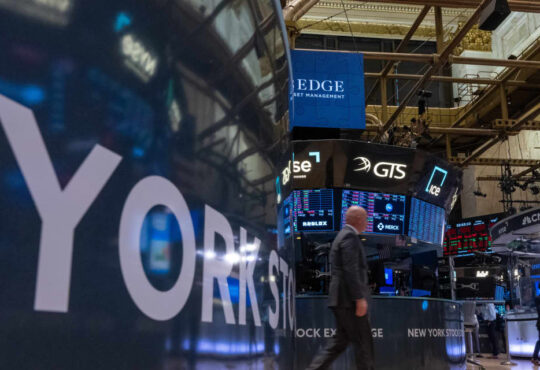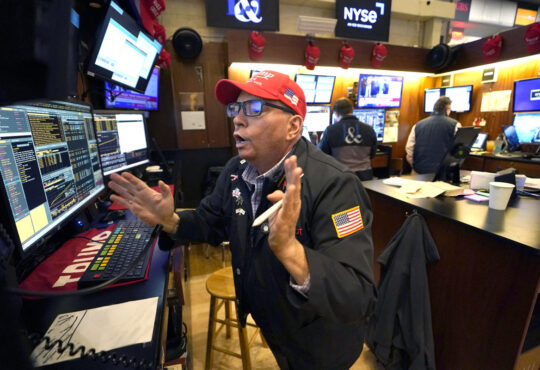
Stock Market News for Dec 19, 2024
Wall Street closed lower on Wednesday in a broad-based decline. Stocks took a deep dive after the central bank indicated it would take a far more cautious path in cutting rates in 2025. The three most widely followed indexes closed the session firmly in the red.
The Dow Jones Industrial Average (DJI) plunged 1,123.03 points, or 2.6%, to close at 42,326.87. Twenty-nine components of the 30-stock index ended in negative territory, while one ended in positive. For the Dow, this was a 10th straight session of decline, its longest losing streak since 1974.
The tech-heavy Nasdaq Composite fell 716.37 points, or 3.6%, to close at 19,392.69.
The S&P 500 lost 178.57 points, or 3%, to close at 5,872.03. All 11 broad sectors of the benchmark index closed in the red. The Consumer Discretionary Select Sector SPDR (XLY), the Real Estate Select Sector SPDR (XLRE) and the Technology Select Sector SPDR (XLK) declined 4.5%, 3.9% and 3.2%, respectively.
The fear-gauge CBOE Volatility Index (VIX) increased 74% to 27.62. A total of 18.6 billion shares were traded on Wednesday, higher than the last 20-session average of 14.4 billion. Decliners outnumbered advancers by a 9.489-to-1 ratio on the NYSE, while on the Nasdaq Composite, declining issues had an 5.46-to-1 advantage.
It was expected that the Federal Open Market Committee (“FOMC”) would cut the Fed funds rate by 25 basis points (bps) at its final policy meeting of 2024 and would take a cautious stance for 2025, but investors had not yet priced the latter in. There was hope that Fed officials would be moderate in their caution. The Fed did cut rates by 25 bps.
However, with policymakers now expecting two interest rate cuts in 2025, down from four in September, and positioned for a pause in January, stocks plunged on Wednesday. The central bank had turned more hawkish than investors had braced for.
“I think we’re in a good place, but I think from here it’s a new phase and we’re going to be cautious about further cuts,” Fed Chair Jerome Powell said at a press conference at the conclusion of the FOMC meeting. Powell said that the Fed remains confident about inflation continuing to ease but acknowledged that a lot would depend on how President-elect Donald Trump’s promises of higher tariffs, tax cuts and tougher immigration policy play out.
As a result, a broad-based slowdown was evident in trading across sectors. Consumer discretionaries, real estate and tech stocks suffered the most.




